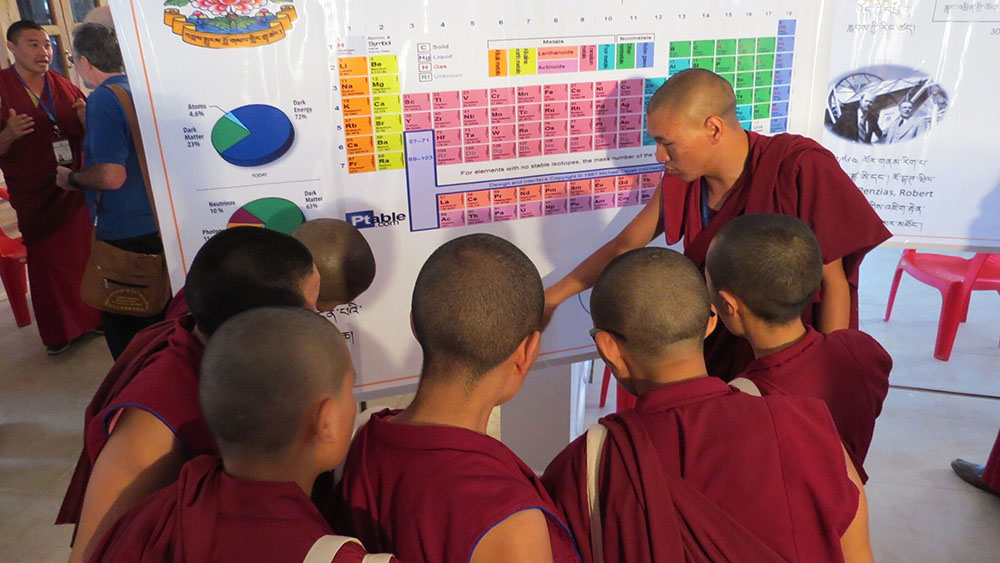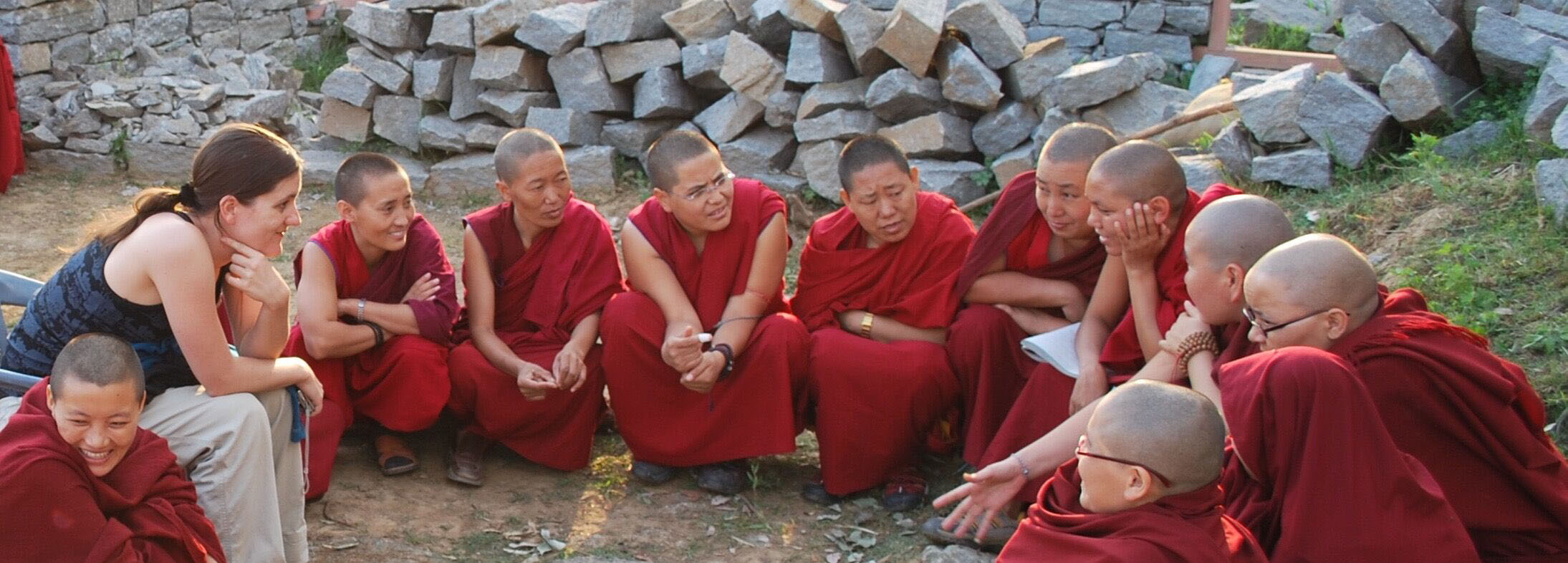
ETSI Sustainability Phase (2020-2022)
The Sustainability Phase of ETSI started in summer 2020. Designed to strengthen the intellectual and logistical foundation established during the pilot and implementation phases, ETSI is now working to cultivate a new kind of scientists: monastic scholars who are leaders in scientific research and pedagogy and who embody the convergence of Tibetan Buddhism with western science research and teaching while also having an informed awareness about the points of divergence. ETSI is focusing on transitioning from monastic science courses being taught primarily by visiting science faculty and lay Tibetan teachers to the monastic science programs becoming self-sufficient with courses taught primarily by monastics.
The launch and expansion phases of ETSI implementation set up a template for how science education could be embedded in monastic institutions while introducing a significant number of science naïve monastics to concepts and knowledge crucial for science education to take root in monastic culture. Now that the curriculum is fully implemented in the participating monasteries and nunneries, one of the key elements to cultivating long-term sustainability is having a sufficient number of qualified indigenous instructors. In the sustainability phase, ETSI will develop a group of approximately sixty monastics who will ensure that the curriculum continues to be delivered with fidelity in the monasteries year round. Their experiential learning as teachers will be integrated into subsequent workshops to assist them in further refining the syllabi, methods and resources they use in delivering the six-year ETSI curriculum, thus preparing them to excell as monastic science teachers.
The monastics chosen to participate in the sustainability phase evidence firstly, the commitment and passion for the incorporation of science into the traditional monastic course of study; secondly, the ability to develop the skillsets vital to performing the necessary pedagogical tasks well; and thirdly, an interest in pursuing research either at the level of program assessment, or at the level of collaborative research. In the course of any given year, these sixty will reach several thousand of their fellow monastics as they implement the ETSI curriculum, allowing the monastery science programs to, in time, function independently. Additionally, through research collaborations and continued dialogue with scientists, they can significantly impact the culture and methods of traditional science leading to additional publications, new approaches to science pedagogy, and innovative research projects.
Science Research and Pedagogy Development Fund
A Science Research and Pedagogy Development Fund will also be launched during the sustainability phase to support institutional development and independent monastic projects year-round. Each year, there will be a fund to which individual monastics or small teams can apply to support independent research and pedagogical development projects. This will provide experiential learning in real-world skillsets such as proposal writing, budgeting, research design and new course creation.



 ETSI
ETSI